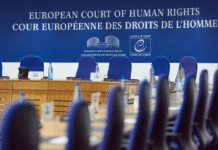
As part of an investigation targeting people over the alleged use of a smart phone application known as ByLock, Turkish police are looking for 24 more journalists who are at large. It was reported on Monday that police detained 11 of 35 journalists who are accused of membership in the faith-based Gülen movement due to using the ByLock app., as part of an investigation run by the İstanbul Public Prosecutor’s Office.
The police are continuing operations to detain journalists Abdülkadir Gümüşsoy, Ahmet Doğan, Bedrettin Uğur, Yakup Üstün, Selim Sırrı Bayer, Mustafa Gürlek, Emrah Kamil Ülker, Ertuğrul Erbaş, Hüdaverdi Yıldırım, Hülya Tekin, İbrahim Yekebaş, İrfan Galip Dumlu, İsmail Muhammet Sağıroğlu, Levent Özkökeli, Mahir Etyemez, Mesut Ertanç, Murat Keskin, Mustafa Kılıç, Osman Çalık, Sedat Gülmez, Serdar Bal, Aysun Yazıcı Kurumahmut, Hasan Hüseyin Koç and Emrah Direk.
Police have already detained journalists Burak Ekici, Muhsin Pilgir, Ömer Faruk Aydemir, Sait Gurkan Tuzlu, Cüneyt Seza Özkan, Yusuf Duran, Ahmet Feyzullah Özyurt, Ahmet Sağırlı, Mutlu Özay, Mehmet Ali Ay and Yasir Kaya since August 10.
Turkish authorities believe using ByLock is a sign of being a member of the Gülen movement, which the government accuses of masterminding a failed coup attempt on July 15, 2016. The mobile phone application ByLock is seen as the top communication tool among members of the group. Tens of thousands of civil servants, police officers and businessmen have either been dismissed or arrested for using ByLock since the failed coup attempt.
Meanwhile, Dihaber reporter Deniz Nazlım has been detained in Ankara province due to an outstanding arrest warrant on Monday. It was reported that journalist Nazlım was taken to the anti-terror branch at the Ankara Police Station over an arrest warrant. Police seized technical materials during a search of Nazlım’s home.
Journalist and human rights activist Murat Çelikkan, who was handed down an 18-month jail sentence in May, is also going to be imprisoned for 13 months unless he is allowed to enjoy judicial probation after spending 45 days in prison, the Diken news website reported.
Çelikkan, who stood trial for serving as “editor-in-chief on duty” for the pro-Kurdish Özgür Gündem daily, was given the sentence by the İstanbul 13th High Criminal Court on charges of disseminating the propaganda of a terrorist organization.
He was among a group of intellectuals and press freedom activists who launched a campaign in solidarity with the daily last year, which was under heavy government pressure. Prominent journalists and academics served as the “editor-in-chief on duty” for the newspaper as an act of solidarity.
Nils Muižnieks, the Council of Europe’s commissioner for human rights, voiced disappointment over the sentence and said Çelikkan made invaluable contributions to his office and the Council of Europe as co-director of Hakikat Adalet Hafıza Merkezi (Truth Justice Memory Center), notably on issues relating to missing persons.
Özgür Gündem, along with 14 other media outlets, was eventually shut down by a government decree on issued on Oct. 29, 2016.
Turkey is ranked 155th out of 180 countries in Reporters Without Borders (RSF) 2017 World Press Freedom Index. The situation of media in Turkey has become critical under the state of emergency proclaimed after the coup attempt.
Turkey is the biggest jailer of journalists in the world. The most recent figures documented by the Stockholm Center for Freedom (SCF) has showed that 276 journalists and media workers are now in jails as of August 9, 2017, most in pre-trial detention languishing in notorious Turkish prisons without even a conviction. Of those in Turkish prisons, 252 are arrested pending trial, only 24 journalists remain convicted and serving time in Turkish prisons. An outstanding detention warrants remain for 110 journalists who live in exile or remain at large in Turkey.
Detaining tens of thousands of people over alleged links to the movement, the government also closed down more than 180 media outlets after the controversial coup attempt. Turkey’s Contemporary Journalists’ Association (ÇGD) recently announced that more than 900 press cards were cancelled.
Turkey survived a controversial military coup attempt on July 15 that killed 249 people. Immediately after the putsch, the Justice and Development Party (AKP) government along with Turkey’s autocratic President Erdoğan pinned the blame on the Gülen movement.
Fethullah Gülen, who inspired the movement, strongly denied having any role in the failed coup and called for an international investigation into it, but President Erdoğan — calling the coup attempt “a gift from God” — and the government initiated a widespread purge aimed at cleansing sympathizers of the movement from within state institutions, dehumanizing its popular figures and putting them in custody.
Turkey has suspended or dismissed more than 150,000 judges, teachers, police and civil servants since July 15. Turkey’s Justice Ministry announced on July 13 that 50,510 people have been arrested and 169,013 have been the subject of legal proceedings on coup charges since the failed coup. (SCF with turkishminute.com)














